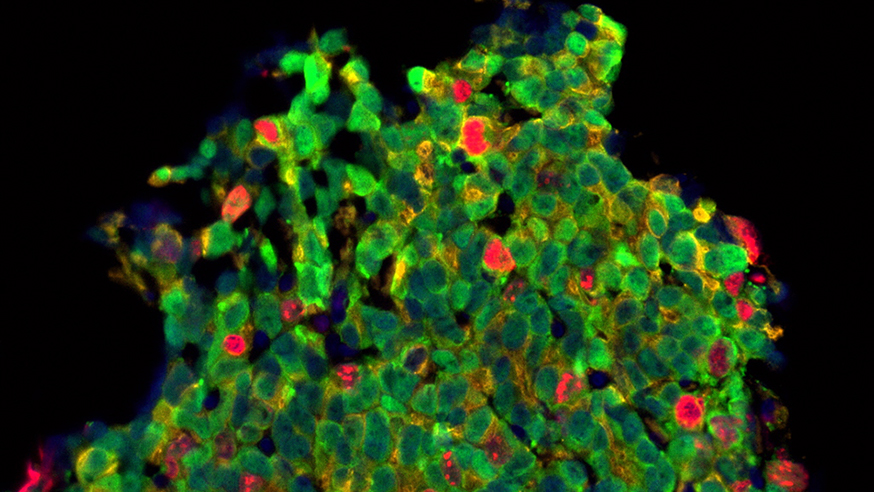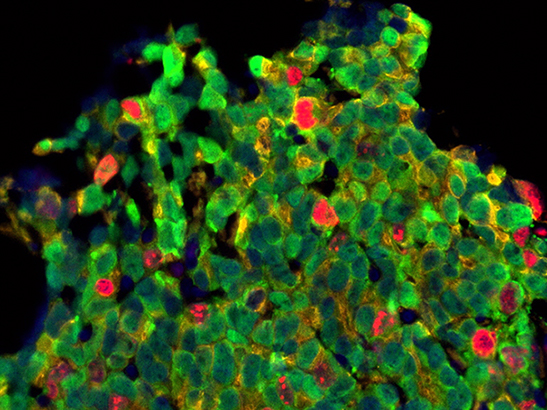
Treated prostate cancer cells (photo: Mateus Crespo/Professor Johann de Bono, the ICR)
A drop in the number of cancer cells detected in a patient’s blood could be the best indicator yet as to whether treatment for prostate cancer is working.
A new study, published in European Urology, shows that a 30% decline in a patient’s numbers of circulating tumour cells, known as CTCs, could signify that the patient is benefitting from treatment.
Scientists at The Institute of Cancer Research, London, and The Royal Marsden NHS Foundation Trust, with international collaborators, analysed blood samples from 486 men with advanced prostate cancer before treatment and then afterwards at four-week intervals.
Patient samples were analysed from two different trials where a baseline CTC count as well as monthly follow-up counts were available.
One of the trials, COU-AA-301, was a phase III trial in which patients with advanced prostate cancer who already received chemotherapy were given abiraterone and prednisone or placebo and prednisone.
The other trial, IMMC-38, was a prospective trial in which patients with prostate cancer that had spread — or metastasised — received chemotherapy.
In both trials, patients with a 30% decline in CTCs survived significantly longer than those with stable or increased numbers, whether at four weeks (14.4 vs 7.9 months), eight weeks (15.4 vs 7.9 months) or 12 weeks (16.1 vs 9.7 months).
Better prognosis
Importantly, a drop in the number of CTCs was a useful indicator of prolonged survival whether the treatment used was abiraterone, steroids or chemotherapy.
Previous work had suggested that a low number of CTCs indicated a better prognosis.
But this is the first study to prospectively test whether a percentage decline in CTC number can distinguish between patients benefiting from treatment and those who may need to switch treatments.
If these results are confirmed in future trials then a 30% decline in CTCs could be used to make these decision earlier — helping patients start better treatments faster and discontinue drugs that aren’t working sooner.
The study was led by researchers at the ICR and The Royal Marsden with charity support from Prostate Cancer UK and Movember for the London Movember Prostate Cancer Centre of Excellence, through an Experimental Cancer Medical Centre from Cancer Research UK and from the Department of Health.
Professor Johann de Bono, Regius Professor of Cancer Research at the ICR, and Consultant Oncologist at The Royal Marsden, who led the study, said: “For too long patients suffering from advanced prostate cancer and their clinicians have had to face a frustrating wait to find out whether a new a new cancer treatment was working.
“This study raises the prospect that a patient could simply have a blood test within as little as four to six weeks after starting a new treatment to indicate whether they should continue or switch to another option.”
